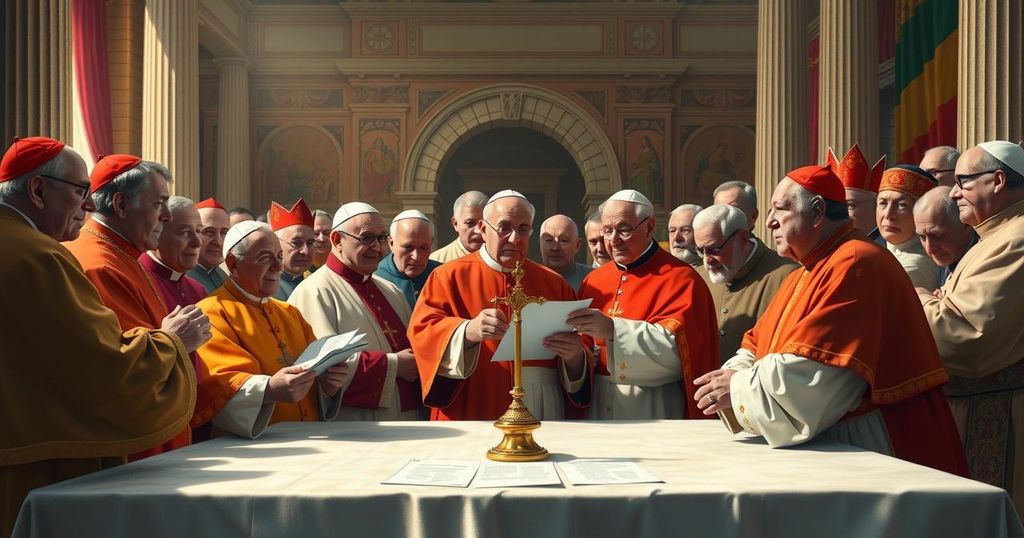Election of Pope Leo XIV: A Historic Shift in Global Catholicism

The election of Pope Leo XIV as the first American pope marks a historic shift in the Catholic Church, reflecting increased global diversity. With the conclave lasting two days and four votes, the event signifies the rising influence of non-European voices in Church leadership. The changing demographic of Catholics now centers outside Europe, particularly in Latin America and Asia.
The election of Pope Leo XIV marks a significant moment in the history of the Catholic Church, as he is hailed as the first American pope. This event not only commemorates a milestone but also symbolizes shifting dynamics within global Catholicism. The conclave, where the new pope was elected, spanned two days and involved four rounds of voting, which is pretty standard—a typical conclave can last anywhere from two to four days.
This timely election highlights a noteworthy change; the influence of non-European voices is becoming more pronounced in the leadership of the Church. Historically concentrated in Europe, particularly in Italy, the College of Cardinals is now becoming more diverse. There’s an evident increase in representation from regions like Latin America, Africa, and Asia. This is quite a shift considering that, currently, most Catholics are residing outside of Europe.
Even though North America has a smaller Catholic population, its influence is still significant. The election of Pope Leo XIV is indicative of the Church’s ongoing endeavor to adapt to its global identity. It also demonstrates a commitment to elevating leaders from various backgrounds, particularly those that are non-European. This evolving landscape in the Catholic hierarchy suggests a distinct and progressive approach to the future of Catholicism.
Pope Leo XIV’s election signifies a crucial turning point for the Catholic Church, emphasizing a more diverse leadership that reflects the global nature of its followers. The swift conclave process also mirrors the Church’s determination to incorporate voices from outside Europe more significantly. Overall, this pivotal moment reinforces the need for the Church to acknowledge and engage with its changing demographic landscape.
Original Source: m.koreaherald.com







